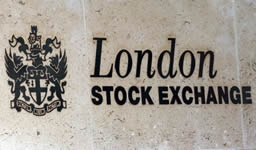LSE offers Zim hope

could provide the right platform for Zimbabwean firms wishing to raise project finance through Initial Public Offerings, a visiting delegation from the London Stock Exchange has said.
The LSE delegation was in the country last week for a one-day symposium to explore partnerships with locals.
They also explained to local firms the opportunities and requirements for raising capital on London’s capital markets.
The delegates said London, as the biggest capital and securities market in the world, provided the most significant and diverse pool of investors from which to raise capital.
LSE has about 3 000 firms listed on the Main Market and AIM. Apart from offering a securities trading platform, the LSE — as a firm and through sub-units — provides other services such as stock exchange technology and brokerage.
Mr Ibukun Adebayor, LSE head of business development, Africa, Middle East and South Asia, said London provides a large pool of institutional investors such as fund managers, insurers, equity, retail and pension fund investors.
Mr Adebayor narrated how the LSE Main Market and its junior, the Alternative Investment Market, work and the stringent conditions for admission.
He said London’s capital markets were extraordinarily pragmatic in protecting the interests of both the investors and the businesses in raising capital to fund growth.
Apart from a diverse pool of investors from which capital could be raised, the LSE could lift tremendously the profile of a firm that met its rules and regulations.
Mr Adebayor said the LSE also provided a continuous liquid market to raise funding long after a firm had listed, which was critical for Zimbabwean firms.
He said London, especially AIM, could provide strategic opportunities for local firms that may be looking to grow either regionally or internationally.
What could be striking to Zimbabwean firms were revelations that contrary to popular perception, London investors could still buy into local firms, as long as the idea and potential returns were nicely packaged and presented.
“They are not averse to that type of risk as in 2009 we managed to convince some of the investors to invest in Pakistan in spite of its instability,” he said.
He said London was the least expensive market to raise capital and could cost a firm between 5 and 6 percent of the IPO to get admission.
Mr Adebayor said this contrasted sharply with other capital markets, such as New York, which could cost a company between 7 and 10 percent of IPO for a listing.
He added it cost more when raising less than US$50 million, but for bigger amounts of up to US$70 million the costs would be less.
“There is no doubt, London is a place that can accommodate companies from Zimba-bwe,” said Mr Adebayor.
Concurring, Ernst & Young UK’s global partner (Mining and Minerals), Mr Michael Lynch-Bell, said a company wishing to raise capital in London needed to have a well-packaged story that would entice the investors.
He stressed the need for clear and transparent shareholder structure, explanation on capital expenditure, good corporate governance systems, communication channels with shareholders and the right reporting systems.
The investors wanted management with demonstrable success, which could lure them regardless of a firm’s profitability, size, business line, diversity, as long as the plans were clear.
However, by listing on London markets shareholders would need to contend with being susceptible to market conditions and losing control of the business.
LSE also demands firms that adopt International Financial Reporting Standards, increased disclosure obligations and requires thorough listing preparation.
Generally, a firm planning to list on the LSE needs to start thinking and planning for such a process that could take up to 12 to 24 months.
Mr Shingi Mutasa, whose Masawara Plc listed on AIM last year, admitted listing in London was more onerous and demanding, but said it provided the most diverse pool of investors prepared to take risk and invest in Zimbabwe.
Securities firm Westhouse, which has brokered transactions for Zimbabwe-invested firms such as Mwana Africa and Implats, said the country had highly skilled personnel to meet the demands of London’s capital markets.
“It might be right for many of you to raise capital in London, but it needs to be done when you have clear plans to grow your companies,” said Westhouse CEO Mr Christopher Getley.
“There is huge growth to come from this part of the world.”






Comments